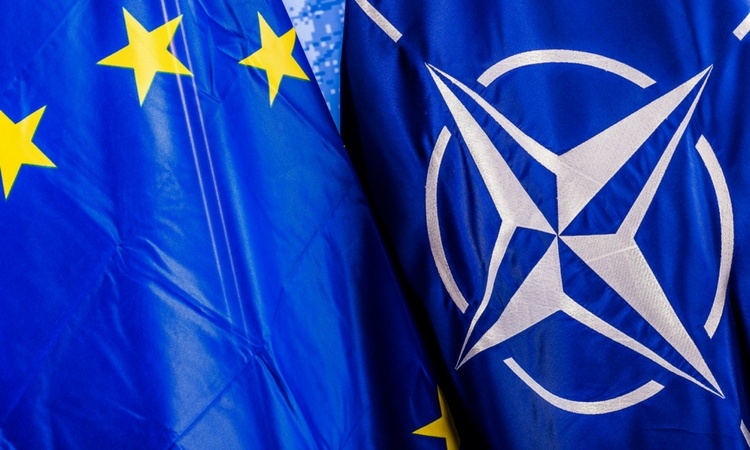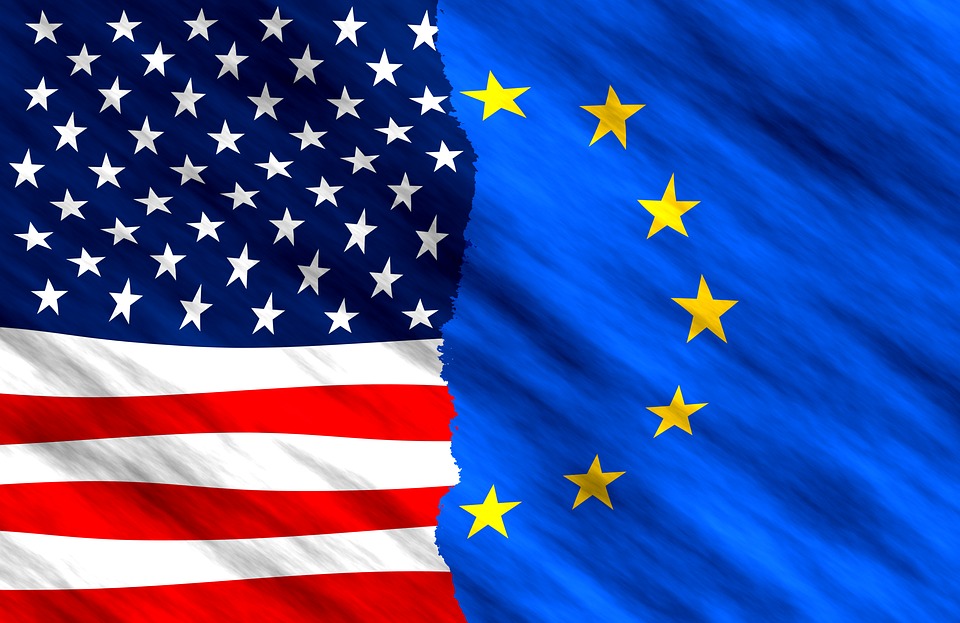‘The era of a somewhat naïve Europe has come to an end’, says Josep Borrell, Vice-President of the European Commission and High Representative of the Union for Foreign Affairs and Security Policy. He spoke at the recent EU Defence Washington Forum hosted by the Brookings Institute. Covid 19 has highlighted areas of vulnerability in a manner both timely and sobering. The fight for narrative hegemony via disinformation campaigns, the dangers of unchecked foreign direct investment and supply chain dependencies are all major areas of concern. In a post-Covid world, 70 year old EU/NATO relations are regaining something of their Cold War closeness. Indeed as China and the US appear headed toward another Cold War, the Trans-Atlantic relationship may well find increasing impetus for rapprochement via NATO.
The North Atlantic Treaty was signed in April, 1949 by 12 Western nations. These included the United States, France, the UK and Canada. Germany would join in 1955. Designed to counter the growing expansionism of the Soviet Union, it was also seen as a way to discourage the revival of nationalist militarism in Europe while furthering its political integration. Article 5 of NATO’s constitution makes clear that an armed attack against one of its members is considered an attack against them all. Today, 22 of its 28 members are also EU Member States. But as James Appathurai, Deputy Ass. Sec. Gen. for Political Affairs and Security Policy at NATO, points out, non-EU NATO members including countries like Turkey, Norway and Iceland, make up for 58% of the NATO population and involves 582 million citizens.
Who’s paying and how much?
The EU has relied on NATO for its defence to a large degree for the past 70 years. There have long been calls from successive White House administrations for EU members to make larger contributions to the NATO budget and increase their own defence spending. Perhaps unsurprisingly, these calls have become even louder since the arrival of the Trump administration. Currently, both Germany and the US equally contribute 16% to NATO’s central budget. It is a fairly modest $2.5 billion per year. It was also agreed in 2014 that each member state will increase its own defence spending to 2% of GDP by 2024. Few have yet reached this goal although NATO Secretary-General Jens Stoltenberg said that defence spending by European allies and Canada increased in real terms by 4.6% in 2019.
The European Union has recently (since 2016) shown increased interest in beefing up security and defence autonomy. The EU global strategy presented in June 2016 signalled a desire for the EU to play a more global role in security and defence. The European Defence Fund was launched in the same year in order to foster ‘an innovative and competitive defence industrial base’. The revival of PESCO (permanent structured cooperation) in 2019, designed to deepen defence cooperation among capable and willing EU member states, is further evidence of this trend.
However the departure of the UK from the Union and the arrival of COVID 19 have seriously undermined these intentions. In a recent interview with German Minister of Defence, Constanze Stelzenmüller (Senior Fellow at the Center on the United States and Europe), described European defence policy as ‘on life support with a ventilator’. The comment was made as the EU budget (2021 – 2027) reduces defence spending to a maximum of €13,185 billion over 7 years. While Germany has relegated security to the last chapter of its EU presidency plan.
‘NATO is and will remain the cornerstone of our defence.’ – Josep Borrell, EU Commission Vice-President
It is in this context that EU Commission Vice-President, Josep Borrell, stated earlier this month, ‘NATO is and will remain the cornerstone of our defence. There is no alternative to it.’ Deputy Sec. Gen for Common Security and Defence Policy at the European External Action Service, Charles Fries, agrees that the EU would like to have a dedicated EU/US security and defence dialogue. But also maintains that Europe would like to take more responsibility for its own security and defence. ‘Covid 19 is a wake-up call for the EU.’
Borrell also acknowledges that ‘our partners around the world expect us to play a bigger role as a provider of global security and we are ready to do this’. Nevertheless, the European Union’s vision of global security provider has traditionally struggled with a lack of interest from individual Member States. National governments would rather spend on more voter-friendly projects. But the pandemic might help to change this.
EU ‘lacks a common strategic compass’ – German Minister of Defence.
Research shows that the pandemic has caused European citizens to become more aware of the need for a united Europe when facing large external threats, like Covid. Dependencies and vulnerabilities in the health and digital sectors are of particular concern. Nevertheless, as Kelly Magsamen, at the Center for American Progress, points out, Europe continues to lack a common view of what strategic EU autonomy looks like. Or, as German Minister of Defence, Annegret Kramp-Karrenbauer, puts it, ‘we lack a common strategic compass’.
To this end, Germany will use its 6 month presidency to establish a common threat analysis. This will form the basis for further agreement on security and defence. EU leaders like Borrell, acknowledge the need for both hard and soft power in a post-Covid world. The reality however is that a lack of shared vision and reluctance to invest strongly in defence, makes the hard power part of the equation difficult to achieve without NATO.
Strong EU/NATO relations ‘not a zero sum choice‘ – Kelly Magasamen, Centre for American Progress.
The downward pressure on defence spending post-Covid is acknowledged by leaders in both NATO and the EU. Timo Pesonen, Director General for Defence and Space at the European Commission, points to a drop of 10-20% of turnover in the defence sector as a result of the pandemic. He warns that ‘we cannot again afford to take a decade to recover our defence industry’, referring to the effects of the 2007/8 financial crisis. One solution is to co-ordinate and share resources. This has however, proved problematic in the past.
Washington, particularly under Trump, has viewed EU defence ambitions with suspicion and NATO has raised concerns about duplication. However as Kelly Magsamen points out, the US needs to be thinking very differently about EU initiatives like PESCO. She claims that strong EU/NATO relations ‘are not a zero sum choice’ but rather sees it as ‘mutually reinforcing’. More creative thinking around common defence would certainly seem to be the way forward.
Covid has provided a modest reminder of what a war-time Europe might look like.
EU/NATO cooperation on mobility, specifically military mobility may provide a blueprint for cooperation on other, more thorny issues. These include critical infrastructure, cybersecurity and even 5G. An EU action plan on military mobility was launched in March, 2018 to address physical, legal and regulatory barriers. The pandemic has highlighted the need for quick, efficient transport of medical and other essential supplies that are typically associated with war-time conditions.
In this sense, Covid 19 has provided a modest reminder of what a war-time Europe might look like. The picture is not pretty. EU leaders and leaders of the Eastern European and Balkan states appear to have taken this on board. There is real interest in strengthening NATO ties and agreement on the need for qualified 3rd party access to things like the EU Defense Fund. The two outliers are France and Germany who, for different reasons, have shown less enthusiasm for rekindling EU/NATO relations. But as President of the Brookings Institute, John R. Allen, insists, ‘We are at our best when we work together closely as allies’. History suggests he may be right.


